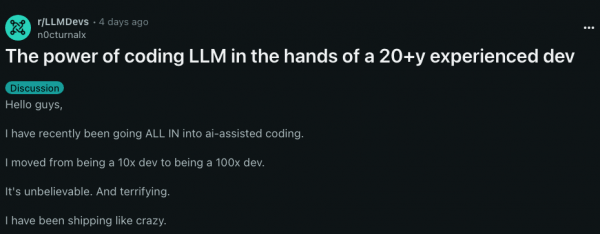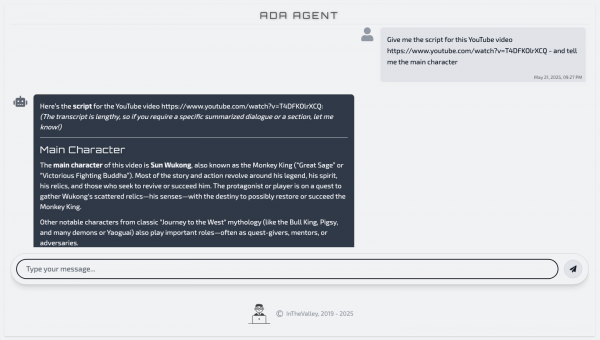Table of Contents
I think it’s time to recalibrate expectations around what AI can do for SaaS companies.
As with any emerging technology, I’m seeing two trends:
The scared founder: “I’ve built my entire company around the SaaS model; It feels risky, like too much of a leap to bake AI Agents into the product. It is not my model; it is a distraction. I will wait and see.“
The delusional founder: “I’m all-in on AI Agents. This is the future of building startups; this is how startups will be built going forward: no code, all services connected, orchestration via AI Agents.“
I appreciate both founders and their mindsets, but I’d like to find a middle ground that is aligned with what’s really happening.
Development Agents
The scared founders will heavily rely on seasoned artisan developers to write quality code. LLMs are powerful, but they’re nowhere near replacing great engineers. Besides, who controls these AI companies? How is my source code protected from them?
The delusional founders will avoid developers at all costs. They’ll hire tech-savvy folks who just get the new vibe, staying a layer above the code. Editing code means you are doing something wrong.
Where are we really? Two Reddit posts might have the answer:


There are two important takeaways from r/LLMDevs:
- I get the overpowering feeling of not having to think about the code and just asking the machine to do it for me. Over time, this becomes the norm, the regular way to build software.
- What the market is calling “Vibe coding” is indeed a new abstraction layer.
I remember not feeling like a true developer because I was writing “scripts” with PHP – instead of using a grown-up low-level compiled language like C.
So who is right, then? Should we stick with Developers or replace them with AI?
The answer -today- is that you need to pair them up.
AI Agents
Now, let’s say you have your AI-powered development team ready. They produce high-quality code and products at incredible speed.
How long before your users start asking for AI? Sooner or later, the user will ask you for AI Agent-powered features:
- I want a Copilot-like experience within your product – I want the Copilot to do stuff for me.
- I want a Chatbot on my website that can answer questions about my data in your system.
- Can your AI Agent talk to other Agents I’m already using? (This one is my favorite)
So, how hard is the transition?
If you look at r/AI_Agents, you will find comments like this:


There’s a gap between what AI can do today and what founders expect. The biggest challenges are unpredictable responses, keeping long conversation contexts, and not having clear best practices for scaling Agents.
On the other hand, when you combine Vibe Coding + AI Agents with the right expectations, experience, and prompts, it is a cinematic sci-fi moment.
A 45-min Sci-Fi Moment
Imagine you can ask your AI Agent the following:
Give me the script for this YouTube video https://www.youtube.com/watch?v=T4DFKOlrXCQ - and tell me the main character

Why? I don’t know — it’s just fun. You can enter any YouTube video URL, get the transcript, and ask any question you want.
The point is this: how long did this automation take? 45 minutes.
It was not about building a new AI Agent; it was about “how” it was built:
- In VS Code, I asked Copilot Agent to generate a sample script to get a YT video transcript.
- Then, I asked Copilot to add a new agent, following the implementation of previous agents, with a new tool using my sample script.
- I tested it; it worked.
It’s all about the how
My team at InTheValley has been adding tools to our internal AI Agents for over two years – making them more powerful every day.
We are helping startup founders transition to this new sci-fi world with their feet on the ground and the right expectations so they can move fast.
You can check out more about us here!
- Your Team Is Shipping Fast. That’s the Problem. - 02/21/26
- AI Moved the Bottleneck to Your Head - 02/19/26
- Stop Building AI Agents - 02/17/26